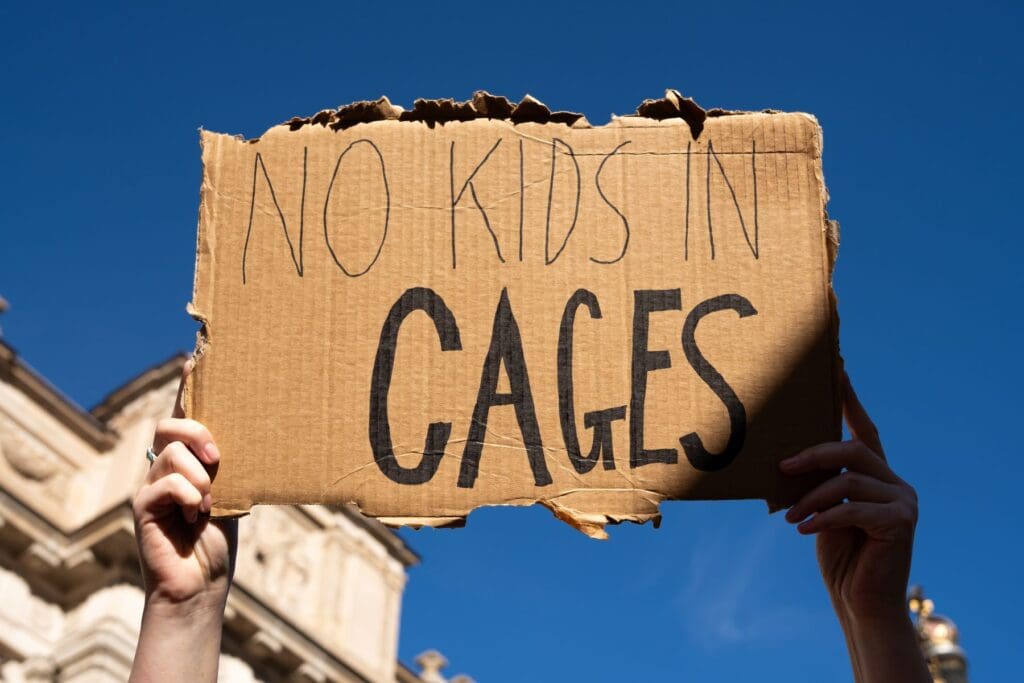Minister for Immigration must commit to ending a decade of refugee family separation
On Saturday the Minister for Immigration, Citizenship and Multicultural Affairs Andrew Giles announced the government’s intention to amend Ministerial Direction 80, a policy that gives the ‘lowest priority’ to visa applications made by family members of refugees who arrived by sea. The direction has been a key tool in a punitive ‘deterrent’ policy targeted at refugees who arrived by sea, and has forced families to live apart for over a decade.
Despite the public statement, the changes announced by the Minister have not yet been carried out and no timeframe was given. It is not yet clear whether the changes will be extended to families of all nationalities. However, even if the Direction is changed so that no refugee families are disadvantaged under this policy, it will not be enough to address the many barriers keeping refugee families apart.
The Human Rights Law Centre calls on the Minister to act to end a decade of intentional family separation by:
-
adequately resourcing the Department of Home Affairs to process tens of thousands of pending family visa applications;
-
reopening humanitarian reunion pathways for families who cannot afford the exorbitant application costs or meet restrictive family visa requirements; and
-
providing permanent residency to temporary protection visa holders who are currently ineligible to apply for family reunion at all.
Sanmati Verma, Managing Lawyer at the Human Rights Law Centre, said:
“Changes to Direction 80 are the necessary first step in allowing families to reunite after a decade of forced separation. But until we see a new policy actually in force, we don’t know whether all families will benefit or whether some will be left behind.”
“This policy change alone is not a complete solution. Families may still wait years to have their applications decided because of endless processing delays and poor-quality decision-making, which means that applications are lost and the same information is requested over and over again.”
“So much more must be done to end the Australian Government’s intentional separation of refugee families. The Albanese Government must urgently deliver on its promise to provide permanent safety to people on temporary protection visas, who are completely shut out from family reunion pathways. Providing a real chance for all families to be together can’t wait any longer – every day counts for families who have spent years trying to reunite.”
BACKGROUND:
Ministerial Direction 80 dictates the order in which applications for family visas are processed, and places all family members of people who originally travelled to Australia by sea at the back of the queue as the ‘lowest processing priority’. Because demand for family visas always exceeds supply, applications affected by Direction 80 may never be processed.
Media contact:
Thomas Feng 0431 285 275
thomas.feng@hrlc.org.au
Media Enquiries
Chandi Bates
Media and Communications Manager

University of Melbourne urged to drop repressive anti-protest and surveillance policies
The University of Melbourne is being urged to abandon policy changes that restrict staff and students’ right to protest and permit the widespread surveillance of people using their wifi network.
Read more
Expanded protections for marginalised groups welcomed in Allan Government’s anti-vilification laws
The Human Rights Law Centre welcomes the additional protections for marginalised groups in anti-vilification laws passed today by the Allan Government. These laws expand protections from vilification to include people from LGBTIQA+ and disability communities, and provide communities with important civil law avenues to address vilification.
Read more
Aboriginal human rights experts take Australia’s racist youth justice policies to the UN
Aboriginal leaders are calling on the United Nations to take urgent action to address Australia’s discriminatory and punitive youth justice policies
Read more


